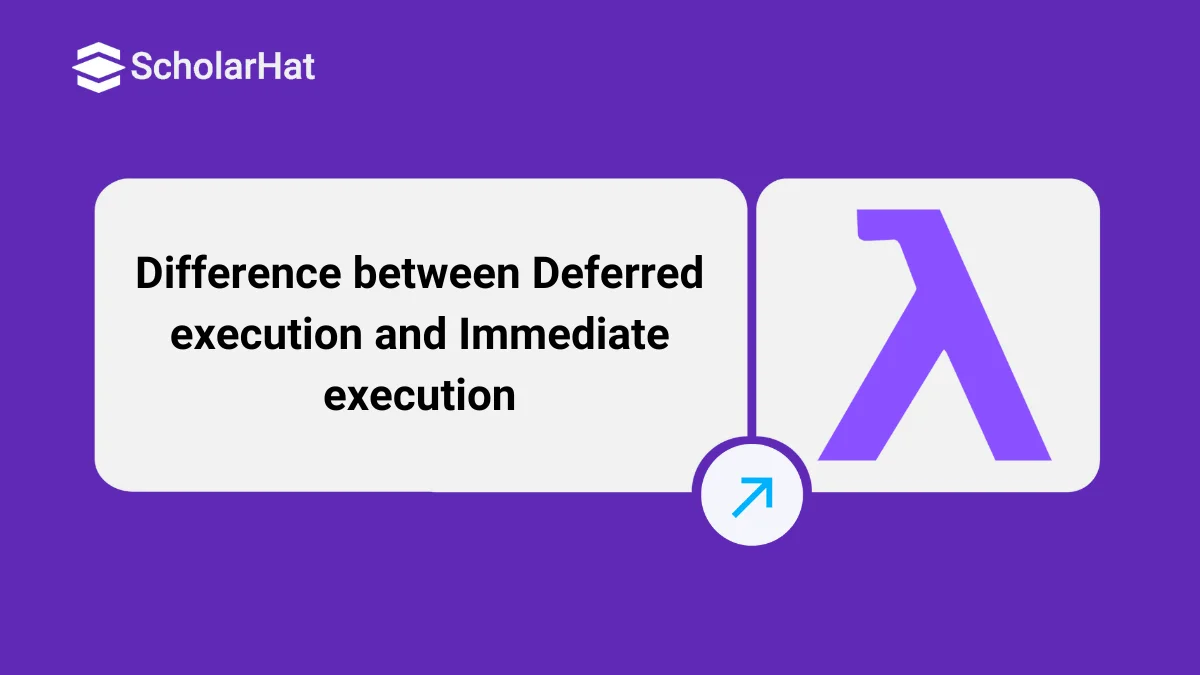27
FebDifference between Deferred execution and Immediate execution
LINQ provides a common query syntax to query any data source. In a LINQ query, you always work with objects. The object might be in-memory of the program or remote object i.e. out memory of the program. Based on object, LINQ query expression is translated and executed.
There are two ways of LINQ query execution as given below:
Deferred Execution
In case of differed execution, a query is not executed at the point of its declaration. It is executed when the Query variable is iterated by using loop for, foreach etc.
DataContext context = new DataContext();
var query = from customer in context.Customers
where customer.City == "Delhi"
select customer; // Query does not execute here
foreach (var Customer in query) // Query executes here
{
Console.WriteLine(Customer.Name);
}
A LINQ query expression often causes deferred execution. Deferred execution provides the facility of query reusability since it always fetches the updated data from the data source which exists at the time of each execution.
Immediate Execution
In case of immediate execution, a query is executed at the point of its declaration. The query which returns a singleton value (single value or a set of values) like Average, Sum, Count, List etc. caused Immediate Execution.
You can force a query to execute immediately of by calling ToList, ToArray methods.
DataContext context = new DataContext(); var query = (from customer in context.Customers where customer.City == "Delhi" select customer).Count(); // Query execute here
Immediate execution doesn't provide the facility of query re-usability, since it always contains the same data which is fetched at the time of query declaration.
What do you think?
I hope you will enjoy deferred and immediate while programming with LINQ. I would like to have feedback from my blog readers. Your valuable feedback, question, or comments about this article are always welcome.






